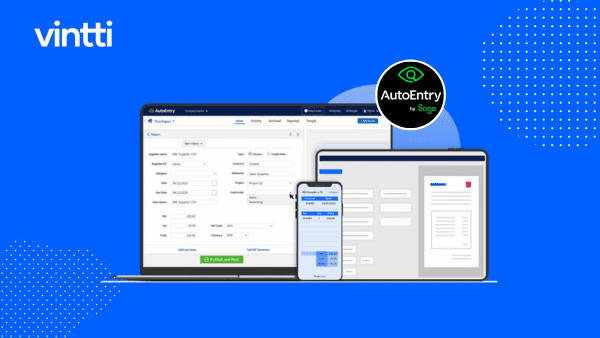Most accountants will agree that manually reconciling financial data is an extremely tedious and time-consuming process.
Using financial close automation software can help accountants dramatically improve efficiency, insight, and collaboration during period-end closing.
In this comprehensive review, we will compare solutions like BlackLine, Workiva, Oracle FCM, Trintech Cadency, and SAP Advanced Financial Closing across key factors like integration, scalability, usability, and support.
Introduction to Financial Close Software
The financial close process is a crucial yet often tedious and time-consuming element of financial reporting for accountants. As businesses grow in size and complexity, manually closing the books each period becomes increasingly difficult. Financial close software aims to automate and streamline this process through features like account reconciliations, intercompany accounting, financial consolidation, disclosure reporting, and workflow management.
Adopting a dedicated financial close solution can benefit accountants and finance teams in various ways:
-
Accelerated closing timeline: By reducing manual efforts around tasks like reconciliations and journal entries, financial close software enables companies to complete the entire close process faster. This improves access to timely financial data for better decision making.
-
Enhanced accuracy and control: Automating repetitive closing activities minimizes opportunities for human error while enhancing visibility into closing status. Features like automatic matching and built-in validations further improve accuracy.
-
Greater efficiency: Financial close automation allows accounting teams to reduce time spent on routine closing activities by up to 50-70%. This frees up their capacity to focus on value-add analysis and reporting.
As this introduction indicates, purpose-built financial close systems offer immense advantages for streamlining period-end close. The sections below provide a detailed comparative analysis of some top financial close software options for accountants looking to realize these benefits.
What is financial close software?
Financial close software provides automation and management for key accounting processes. By integrating with a company's existing systems and centralizing financial data, it helps accountants gain better accuracy and visibility into their month-end close.
Some key features of financial close tools include:
- Automated reconciliation of accounts across multiple sub-ledgers and general ledgers
- Consolidation of financial data from disparate sources into a unified data set
- Workflow management, notifications and reminders for closing tasks
- Detailed audit trails and reporting for compliance
- Analytics and dashboards for actionable financial insights
Top vendors like BlackLine and SAP Advanced Financial Closing (AFC) enable large enterprises to reduce risk, close books faster, and improve financial controls. For small and midsize businesses, solutions like FloQast provide many of the same benefits at lower cost and easier setup.
By orchestrating and managing key accounting processes end-to-end, financial close software brings better accuracy, efficiency and visibility to the close. This allows finance teams to move from spreadsheet-driven manual work to optimized, automated workflows. The result is they can close faster, reduce errors, and focus more strategic planning activities.
What do you understand about accounting?
Accounting is the systematic process of recording, summarizing, analyzing, and reporting financial transactions of a business. It provides insight into the financial health and performance of a company.
Key responsibilities of accountants
Some of the key responsibilities of accountants include:
- Recording day-to-day financial transactions
- Preparing financial statements like income statements, balance sheets, cash flow statements
- Conducting audits and financial analysis
- Ensuring compliance with accounting regulations and standards
- Filing tax returns
- Providing recommendations for cost reduction and revenue growth
Importance of accounting
Accounting plays a crucial role in enabling businesses to function efficiently. Some reasons why accounting is important:
- It helps quantify the financial performance of a business
- Provides key financial information to management for strategic decision making
- Ensures compliance with regulations around financial reporting and taxation
- Builds trust and transparency with stakeholders through accurate financial reporting
- Helps secure funding by providing potential investors financial information
In summary, accounting is vital for recording, summarizing, analyzing and reporting on the financial transactions within a business. It offers business leaders the financial visibility to make informed decisions and regulators/stakeholders the transparency for governance and oversight.
Enhancing Efficiency with Financial Close Automation
Financial close automation software streamlines the financial close process through capabilities like automated account reconciliations, task management, and analytics. This technology enhances efficiency, accuracy, and visibility across key accounting workflows.
Automating Account Reconciliations with Software
Account reconciliation software imports data from ERPs, bank portals, and other systems to automatically match transactions and reconcile accounts. By automatically handling this traditionally manual process, financial close automation:
- Reduces the risk of human error from manual data entry
- Saves significant time otherwise spent on repetitive reconciliation tasks
- Allows accountants to focus on value-add analysis vs administrative work
Leading solutions like BlackLine feature smart matching engines that auto-reconcile over 95% of transactions out-of-the-box without any rule configuration. This makes it fast and easy to automate even complex account reconciliations.
Streamlining Workflows with Accounting Automation
Purpose-built accounting workflow software centralizes key processes into predefined workflows that guide accountants through each step. Built-in workflows that financial close automation often includes:
- Account Reconciliations - Step-by-step workflow for reconciling balance sheet accounts
- Financial Statements - Automates the financial statement preparation process
- Intercompany Transactions - Manages all stages of intercompany transactions
- Journal Entries - Standardized approval workflow for journal entries
By mapping workflows to leading practices, automation enforces consistency, accountability, and efficiency across the closing process.
Leveraging Real-Time Analytics for Financial Insight
Financial close solutions integrate analytics for real-time visibility into the close. Embedded dashboards connect data across workflows, surfacing actionable insights such as:
- Reconciliation coverage and aging metrics
- Task completion rates by process and responsible party
- Historical comparisons of cycle times and productivity
- Charts showing outliers, trends, and bottlenecks
This intelligence helps managers prioritize resources appropriately and make data-backed decisions to continuously improve accounting productivity.
Enhancing Collaboration with Centralized Accounting Workflows
Cloud-based financial close automation fosters seamless collaboration across global accounting teams. All stakeholders access the same information within structured workflows rather than relying on scattered spreadsheets. Secure user permissions allow information sharing on a need-to-know basis while maintaining separation of duties.
Centralization also facilitates hand-offs between teams as workflows transition through various process owners. Comments and attachments enable clarifying communication without emails or calls. Overall, shared workflows promote visibility and alignment while retaining necessary controls.
In summary, purpose-built software now automates much of the manual, repetitive work associated with key accounting processes. Automation handles the heavy lifting so accountants can focus on high-value analysis that drives business insights. Leading solutions enhance efficiency, accuracy, and collaboration across the modern financial close.
sbb-itb-beb59a9
Comparing Top Financial Close Solutions for Accountants
Automating and streamlining the financial close process is critical for modern accounting teams. As regulatory requirements grow more complex and data volumes increase, manual close procedures quickly become unsustainable. Leading technology solutions now exist to assist accountants with core close activities like report building, account reconciliations, task management, and more.
This section provides an overview of key players in the financial close management software space, focusing on features relevant to accounting professionals.
BlackLine: The Pinnacle of Financial Close Management
BlackLine offers a comprehensive cloud-based platform for automating account reconciliations, transaction matching workflows, and task management. Key features include:
- Automated matching and reconciliation across high transaction volumes with customizable rules
- Detailed audit trails recording the history of all changes
- Centralized task lists with reminders and status tracking
- Collaborative workflows for managing review and approval processes
- Over 200 pre-built reports and robust ad hoc reporting capabilities
With exceptional capabilities for eliminating manual processes, BlackLine is regarded as an industry leader in financial close automation. The platform seamlessly handles high data volumes while ensuring accuracy, transparency, and control.
Workiva: Accounting Workflow Automation Powerhouse
Workiva specializes in cloud platforms for report building, data analysis, and securing sensitive financial information. Core strengths include:
- Central repository for organizing financial and non-financial data
- Automated report assembly with Excel and Word integration
- Advanced analytics, modeling, and benchmarking
- Granular permission controls and watermarking for sensitive data
- Complete audit trails for internal controls compliance
Workiva simplifies the financial close by eliminating fragmented systems and manual assembly of reports, all while ensuring data integrity and security. The platform is flexible, scalable, and particularly popular with SEC filers.
Oracle Financial Close Management (FCM): An ERP-Centric Approach
Oracle FCM provides built-in financial close capabilities natively integrated with Oracle's ERP systems. It focuses on task management, process controls, and analytics for streamlining period-end close. Notable aspects include:
- Period close checklists and validation rules
- Automated reconciliation of intercompany balances
- Cash flow forecasting and unlimited dimensionality for analysis
- Collaborative workflows for managing close tasks
- Over 50 standard reports specific to financial close
For organizations running Oracle ERPs, FCM provides an intuitive extension for centralizing and controlling the financial close. It reduces manual overhead while leveraging established ERP integrations.
Trintech Cadency: Specializing in Account Reconciliation Software
As the name implies, Cadency from Trintech zeroes in on automating the account reconciliation process. Key strengths include:
- Purpose-built for high volume transaction matching
- Automated identification and resolution of exceptions
- Standardized templates for reconciliations
- Audit-ready reporting on all reconciliation activities
- Role-based access and approvals for segregation of duties
With Cadency, accounts payable, receivable, bank, and credit card reconciliations can be streamlined into an efficient touchless process. Trintech's focused approach brings together ease-of-use with powerful automation tailored specifically for reconciliation activities.
SAP Advanced Financial Closing: Comprehensive ERP Integration
SAP AFC works hand-in-hand with SAP ERP to manage all aspects of the period close process. Capabilities include:
- Centralized task lists for financial close checklists
- Workflow-driven review and approvals
- Continuous accounting and closing cockpit for analytics
- Automated intercompany reconciliation
- Integrated with SAP Disclosure Management
For SAP customers, AFC brings additional automation, control, visibility, and analytics to the period-end financial close. The solution builds seamlessly on existing SAP ERP integrations.
Overall when assessing financial close solutions, accounting teams should carefully evaluate where automation can drive the most impact based on current processes, data environments, and enterprise software ecosystems. Leading vendors have emerged with proven technology to handle crucial close activities like reconciliations, report building, tasks management, and analytics. The right choice depends heavily on matching organizational needs to solution capabilities.
Key Factors to Consider When Selecting Software for Accounting Workflow Automation
As businesses grow and transaction volumes increase, manual accounting processes can become tedious, error-prone, and inefficient at closing the books in a timely manner. Implementing purpose-built software for automating accounting workflows and the financial close process is key to improving productivity. However, with many solutions on the market, selecting the right financial close automation software can be challenging.
When evaluating options, there are several important criteria to consider that ultimately contribute to successful accounting workflow automation:
Assessing System Integration Capabilities for Seamless Automation
The ability to integrate financial close software with existing company systems like ERPs is critical for enabling automatic data transfers and reconciliations. Rather than exporting and importing data manually, robust integration capabilities provide connectivity to source systems to seamlessly feed transactional data into the financial close solution for automated matching and reconciliation. This prevents duplication of efforts while streamlining the period close.
Before purchasing software, verify native compatibility or availability of pre-built integrations and connectors with your ERP platform and other key data sources. Solutions that support open APIs provide flexibility for custom integration development as well. Prioritize solutions that provide integration monitoring and error handling to prevent disruptions.
Evaluating Scalability for Growing Accounting Demands
It's also important to implement software that can scale and expand as your business evolves. Assess if the solution can support current accounting and transaction volumes across business units, as well as expected growth in the next 3-5 years as operations increase. Cloud-based financial close software built on elastic infrastructure often provides the flexibility to scale-up seamlessly to handle growing user counts, increased data processing, and additional application workloads.
Verify the software vendor offers appropriate enterprise-grade plans and add-on modules to meet rising needs over time. For faster period closes as volumes grow, ensure the solution facilitates easy process parallelization and load-balancing across accounting teams. Opting for scalable architecture from the start prevents having to migrate solutions after outgrowing initial capabilities.
Determining the Ease of Use for Accountant Adoption
The effectiveness of financial close process improvements largely depends on user adoption across accounting teams. As such, it's mandatory that solutions provide an intuitive and unified user interface with built-in workflows aligned to accounting best practices. This enables staff to quickly conduct reconciliations, close tasks, and financial reporting with just a few clicks rather than navigating complex configurations.
Seeking input from the actual end-users that will adopt the software also helps assess the overall usability and suitability to current accounting workflows. Prioritizing solutions that are user-friendly and easy to learn ensures quicker ramp up and better utilization ultimately maximizing the ROI.
Considering the Impact of Ongoing Support on Software Utilization
While functionality is important when selecting financial close automation software, the quality and availability of ongoing vendor support is also key for long-term success. Be sure to evaluate each provider's customer service responsiveness, availability of resources, and capabilities for resolving issues or complicated configuration requests.
Leverage free trials, demos, and vendor consultation sessions to experience support first-hand and clarify aspects like service-level agreements, response times, communication channels offered, and opportunities for customer input influencing product enhancements. Prioritizing responsive support and customer success resources ensures you can fully utilize software capabilities and achieve process improvements over time through optimal system utilization and continuous optimization.
SAP AFC vs Blackline: A Comparative Analysis
SAP Advanced Financial Closing (AFC) and BlackLine are two of the most widely used financial close automation solutions for accountants. While both aim to streamline period-end close and improve efficiency, they have some key differences in their approach, features and ideal customer profiles. This section analyzes how SAP AFC and BlackLine compare.
Core Capabilities and Focus
SAP AFC is designed specifically for large, complex organizations using SAP ERP as their financial system. It seamlessly integrates with SAP to automate reconciliation, task management workflows and reporting for the period-end close process. Key capabilities include:
- Automated reconciliation of high transaction volume accounts like receivables, payables and inventory
- Pre-built integration with SAP Fiori apps for ease of use
- Centralized task management with alerts and notifications
- Real-time analytics and unified reporting
BlackLine focuses on account reconciliation across all major ERPs and accounting systems. It provides an independent cloud platform to control key tasks, reduce manual processes and improve visibility. Key features include:
- End-to-end account reconciliation capability
- Customizable workflows adaptable to any existing process
- Detailed transaction matching and auto-reconciliation
- Centralized reporting dashboard
In summary, SAP AFC delivers deep SAP-native integration while BlackLine offers flexibility across systems.
Implementation and Ongoing Management
Implementing SAP AFC requires greater upfront effort as it is interweaved with the client's SAP landscape. Custom code modifications may be needed to maximize value. BlackLine is faster to onboard with its cloud delivery model.
Ongoing management is handled mostly by the SAP admin team for AFC. BlackLine shifts more responsibility to business users with built-in self-service configuration.
So SAP AFC calls for more IT involvement whereas Blackline enables greater business user ownership.
Pricing Considerations
SAP AFC licensing is bundled into existing SAP agreements, reducing incremental cost but increasing overall SAP spend. BlackLine offers flexible subscription plans based on volume metrics like number of users and accounts.
For larger SAP customers, AFC would be the cheaper option. Other organizations may find BlackLine's unbundled pricing more cost-effective.
When Does Each Solution Excel?
SAP AFC brings the most value for complex, global companies using SAP ERP. Tight integration reduces risks and manual processes. BlackLine best suits mid-size businesses with multiple financial systems since it acts as an integration layer on top.
So in summary, SAP AFC optimizes the period-close for large SAP customers, while BlackLine consolidates financial data enterprise-wide regardless of IT landscape. Companies should weigh their existing tech stack, process complexity and cost tolerance when deciding between the two solutions.
Conclusion: Empowering Accountants with the Right Financial Close Tools
The financial close process is a complex and critical task for accountants. As we have seen, automating parts of the process with software solutions like SAP Advanced Financial Closing (AFC) and BlackLine can provide tremendous efficiency gains.
When evaluating financial close automation tools, keep the following guidelines in mind:
Ensure the software matches your use cases
Carefully analyze your current financial close procedures to determine where automation can be most impactful. Prioritize software capabilities that directly address your pain points around account reconciliation, transaction matching, reporting, and more.
Consider ease of integration
The software should integrate cleanly with your existing tech stack like ERPs and GL systems, ensuring data flows securely without manual intervention. Cloud-based platforms may offer more seamless integration.
Weigh the pros and cons of all-in-one suites vs. specialized tools
All-in-one solutions like SAP AFC provide end-to-end financial close automation but can be complex to deploy. Purpose-built tools like BlackLine focus deeply on singular capabilities like account reconciliation. Evaluate your needs to determine the right approach.
Plan for scaling adoption across the organization
Change management is key. Set staggered rollout schedules and provide training where needed to drive company-wide user adoption. Appoint power users to provide ongoing support and champion usage.
By carefully assessing their workflow needs and accounting environment characteristics, firms can determine the automation tools that will provide the best productivity gains for their financial close. Wise software investments will empower accountants to focus less on manual data tasks, and more on providing impactful business insights.




